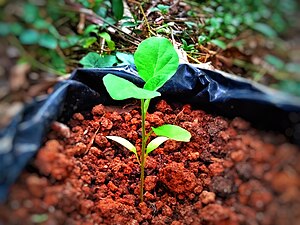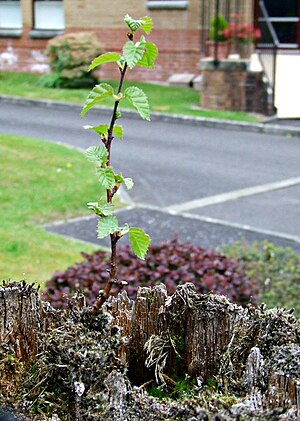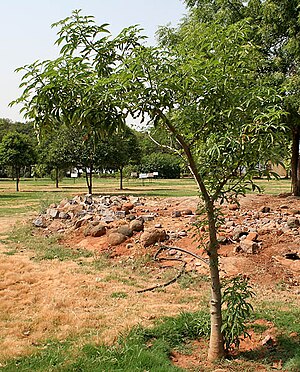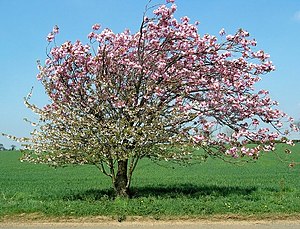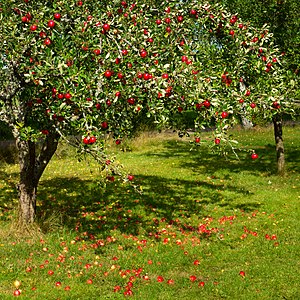Child development
| DRAFT: This page is in a tentative draft status. It may contain problems ranging from typographical errors to philosophic inconsistency. Nevertheless, it is offered under the be bold wiki publication model. |
"There were few homes in the gentile world of those days that could give a child a better intellectual, moral, and religious training than the Jewish homes of Galilee. These Jews had a systematic program for rearing and educating their children. They divided a child’s life into seven stages:
1. The newborn child, the first to the eighth day.
2. The suckling child.
3. The weaned child.
4. The period of dependence on the mother, lasting up to the end of the fifth year.
5. The beginning independence of the child and, with sons, the father assuming responsibility for their education.
6. The adolescent youths and maidens.
7. The young men and the young women.
It was the custom of the Galilean Jews for the mother to bear the responsibility for a child’s training until the fifth birthday, and then, if the child were a boy, to hold the father responsible for the lad’s education from that time on..." [123:2.5-123:2.13]
"The acquisition of the potential of the ability to learn from experience marks the beginning of the functioning of the adjutant spirits, and they function from the lowliest minds of primitive and invisible existences up to the highest types in the evolutionary scale of human beings. They are the source and pattern for the otherwise more or less mysterious behavior and incompletely understood quick reactions of mind to the material environment. Long must these faithful and always dependable influences carry forward their preliminary ministry before the animal mind attains the human levels of spirit receptivity." [65:7.6]
1. Seed/Germinating (in utero)
- 1st adjutant mind-spirit encircuits ("spirit of intuition") [36:5.6]
- The kicking of a baby w/in the mother's womb qualifies as "primitive physical and inherent reflex instincts"
- Religious Foundation: to be loved and cared for
2. Sprout (the suckling child - babies)
- 2nd adjutant mind-spirit encircuits ("spirit of understanding") [36:5.7]
- First exposure to word symbols and ideas; eventual association of people and objects with names (first possible with baby sign language, then spoken words) indicates "association of ideas" and "co-ordination of acquired knowledge"
- this stage culminates in walking, talking, and feeding oneself
- Religious Foundation: to develop love and trust
- Religious Activities: be loved and cared for; spend time with mother and father; be sung to, read to, and prayed to; play
3. Seedling (the weaned child - toddlers)
- 3rd adjutant mind-spirit encircuits ("spirit of courage") [36:5.8]
- In crude form, the spirit of courage is a "form of protective self-consciousness." [62:6.3] During the toddler phase, the child becomes aware of the self as an individuated phenomenon. Toddlers practice their newfound autonomy with the word "no."
- 4th adjutant mind-spirit encircuits ("spirit of knowledge") [36:5.9]
- The spirit of knowledge, also known as "the curiosity-mother of adventure and discovery, the scientific spirit," can be seen in toddlers as they begin eagerly exploring their environments.
- Religious Foundation: follow rules with newfound freedom and independence (law; true liberty vs. false liberty)
- Religious Activities: follow instructions for family time with God; be sung to, read to, and prayed to (actively participate as able and willing); teachable moments through play
4. Sapling (continued dependence on mother - preschool)
- 5th adjutant mind-spirit encircuits ("spirit of counsel") [36:5.10]
- This age is when children begin to truly socialize and learn to coexist with other autonomous beings. (Note that by the time Jesus was just over 3 years old, "he missed the association of his Alexandrian playmates.") [123:1.2]
- Religious Foundation: choose altruism over selfishness; the "Golden Rule"
- Religious Activities: actively participate in family time with God; sing along to religious songs; begin reading religious texts; memorize small scriptural passages; actively participate in group prayer; teachable moments through play
5. Rooting/Growing (beginning independence - grade school age)
- 6th adjutant mind-spirit encircuits ("spirit of worship") [36:5.11]; [62:6.5]; [85:7.1]
- "To the primitive mind there is little difference between fearing, shunning, honoring, and worshiping." [85:7.2]
- 7th adjutant mind-spirit encircuits ("spirit of wisdom") [36:5.12]; [62:6.5]
- "When the worship urge is admonished and directed by wisdom—meditative and experiential thinking—it then begins to develop into the phenomenon of real religion. When the seventh adjutant spirit, the spirit of wisdom, achieves effective ministration, then in worship man begins to turn away from nature and natural objects to the God of nature and to the eternal Creator of all things natural." [85:7.3]
- Correlated with "meditative thought and purposeful decision." [62:6.5]
- Holy Spirit and Spirit of Truth encircuit
- Divine Monitor indwells mind
- a.k.a. Thought Adjuster (see Developmental stages of Thought Adjusters) or Mystery Monitor
- Received upon upon "first moral personality decision" [108:2.1]; after full encircuitment of all 7 mind-adjutant spirits and the Holy Spirit
- The culmination of the human mind [62:6.5]. With this intellectual foundation set, education moving forward now exists "to develop and sharpen these innate endowments of the human mind" [cosmic intuitions of causation, duty, worship]. [16:6.11]
- Religious Focus: cultivate personal relationship with God; develop sensitivity to spirit leadings; develop personal religious habits; engage in worshipful problem-solving
- Religious Activities: contribute to family time with God; sing religious songs; read & study religious texts; memorize longer scriptural passages; actively participate in group prayer and private prayer; teachable moments through play; accompany parents to group worship/religious services
6. Flowering (adolescence)
"With the close of this fifteenth year Jesus completed the traversal of that dangerous and difficult period in human existence, that time of transition between the more complacent years of childhood and the consciousness of approaching manhood with its increased responsibilities and opportunities for the acquirement of advanced experience in the development of a noble character. The growth period for mind and body had ended, and now began the real career of this young man of Nazareth." [126:5.12]
- Adolescence marks the transition from childhood to adulthood, and its completion signals the end of physical and mental growth. In adolescence, the maturing sexual impulse must be controlled, and self-identity examined. Belonging in a self-identified social group becomes an important step for the emerging adult to "shake himself free" of dependence on the family.
- Religious Focus: deepen personal religious practices/habits; find cosmic identity within God
- Religious Activities: read more rigorous religious texts; begin attending adult religious services; begin fellowshipping with other believers away from parents; become acquainted with many personal expressions of religion as well as religious traditions, institutions, and communities
7. Fruiting (young men/women)
- Relative maturity
- Physical, Intellectual, Social, Moral, and Spiritual independence
- Religious Focus: deepen personal relationship with God; leave home with clearly established religious habits; become connected with a religious community of his/her own; seek to start a family of his/her own
- Religious Activities: Prayer, Worship, group fellowship, study


